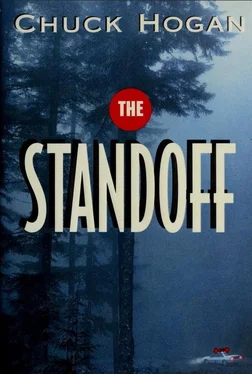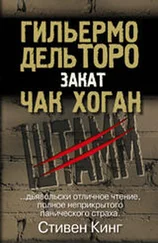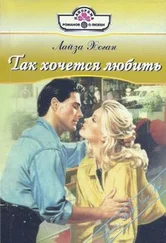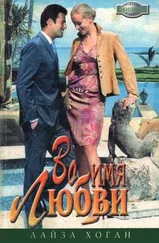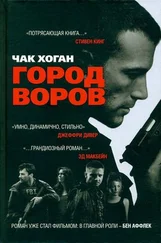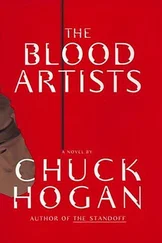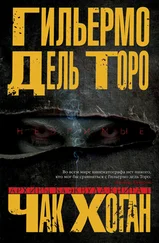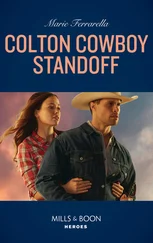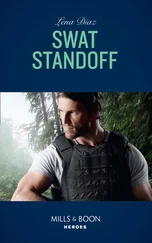From where Blood was standing, near the center of the tree-lined oval clearing and facing the upper two thirds of Paradise Ridge, an entire fleet of parked military vehicles stretched out in a line along a brand-new chain-link fence, like a watch hand pointing to three o’clock. The largest equipment was stored farthest away, green-painted canopy trucks and more flatbeds holding bulky machinery under camouflage nets. The rest of the lineup included Jeeps of various sizes, both covered and uncovered, used mainly for shuttling men back and forth to the bridge at the bottom of Paradise, and sedans and four-wheel-drive Explorers with two or three whip antennas each, all sporting blue government license plates and inspection stickers from different states. Local fire trucks and ambulances were set way down alongside the largest equipment at the farthest right edge of the clearing, Huddleston firemen and Border County Hospital EMTs standing around drinking coffee and earning overtime.
Squarely in front of him, heading out toward what would be about noon, sat four good-sized U-Haul trucks boxed in by the tents. There were seven large tents now, anchor ropes overlapping, sharing between them three or four outdoor generators that hummed and rattled on like well-fed mulchers.
At about the ten o’clock position, wide out to the left near the opening of the road down to the bridge, dozens of trailer barracks sat crammed in like winter specials on a dealership lot. This meant close quarters for the feds, as well as the marshals bunking in the larger tents; Blood had spent the night in his Bronco. At seven o’clock, behind him, agents were busy constructing what looked to be two make-do kitchens. Portable toilets had been trucked in alongside the wooden latrine shed, and a Salvation Army truck now sat squat alongside its sister vehicle, the American Red Cross.
Finally, across the clearing before him, just beyond the tip of midnight at the foot of the rest of Paradise, a dirty orange backhoe ripped at the entrance to the narrow mountain path, beeping as it backed up and dropping its load into a dump truck before digging back into the hard ground full steam ahead. The work crew appeared to be widening the goat path with an eye toward building a road up the mountainside, most likely to allow up some of the larger vehicles. That was a little like widening a drink straw to suck up hamburgers.
Blood shook his head again and finished his coffee and looked around for a garbage can. There was Banish now, coming down out of the trees near the demolition derby, distinct from the other men in blue windbreakers because of the bullhorn in his left hand and the tall, striding figure he cut, moving across the land with clear purpose, seemingly unaware of the clamor and activity and general busywork going on around him. He walked straight over to a large, unmarked six-wheel black van that Blood hadn’t noticed previously. It was backed in right up to the foot of the rise along which agents were erecting tall wooden poles and setting up lights and stringing black telephone wire. Banish disappeared behind the van and Blood waited, watching for him to reappear on the other side. He did not. Blood crumpled the empty cup in his right hand and started slowly across the rumbling clearing.
Banish stood before the open side door of the modified black Econoline van, recalling the long days and longer nights he had spent in a larger, more advanced model, drawn up on the tarmac at La Guardia, or parked around the block from a midtown bank, even pulled up on Liberty Island under the shadow of the big statue. The Hive, as it had been called, a dark, bustling, information-processing brain that Banish had sat at the helm of, receiving information by headphone and issuing orders to the agents buzzing around him. This Butte unit, however, was without digital recording capability and satellite uplink. It offered only reel-to-reel Dolby equipment, and a six-bank of five-inch monitors numbered beneath with Dymo-embossed labels, and accommodated only two fold-out desktop workstations. But it was just as well. He knew he would seek out instead the privacy and the retreat of his command tent office.
“Everything ready?”
The sound man pulled off his headphones and turned in the swivel chair. “If he picks up,” he said.
Banish set the bullhorn mouth-down onto the van floor. He watched Perkins move busily past the front of the van, then stop and nod to himself as he saw Banish. Perkins was wearing a suit jacket and tie, and an ear wire now. A thin newspaper was folded in his right hand. He recognized the sound van as he came up. “Clunky,” he said. “Why not just toss a clean cell phone onto the porch and call him direct?”
Banish appreciated the immediate query, inane as it was. It saved him the tedious pleasantry of “Good morning.” He said, “No negotiations on an un secure line.”
“The time element, though. Even if outside parties could monitor, don’t we want a quick resolution?”
Banish shook his head. “Not at the expense of security.”
Perkins handed him the newspaper, folded open to a page. “Local county fish wrap he said. “Reprint of an interview with Ables from about six months ago. May change your mind.”
Banish scanned the article. The slant of the piece was the irony and embarrassment of the United States Government’s inability to recapture a hometown federal fugitive whose whereabouts were publicly known. The newspaper was painting a local outlaw as a folk hero for circulation purposes. The reporter had interviewed Ables outside the cabin. In one paragraph, underlined in blue pen, Ables stated that he would not be taken alive.
Banish nodded. It fit the man’s profile.
Perkins said, “You don’t take that seriously?”
“He’s been waiting for this,” Banish said, “which is precisely why we don’t rush.”
Banish looked up to see the Indian sheriff sauntering toward them. Banish asked Perkins what his name was.
“Blood,” said Perkins. “He’s the one who first called us in.”
The Indian approached with his cowboy hat brim low on his forehead. His face was loose and the color of soaked cherry wood, his nose not very prominent. Cleaved lines extended from the corners of his dark eyes and his mouth, and his elbows were comfortably bent, hands fit snugly into the pockets of his tan sheriff’s jacket. Brown wool lining made the jacket look soft. “You asked to see me?” he said.
He kept his eyes steadily on Banish. Banish said, “What was the winning slogan?”
The sheriff looked at him. “Come again?”
“Your political campaign. What banner did you run under?”
The sheriff pursed his lips as though recalling it. “ ‘Blood for Border County,’ ” he said.
Perkins smiled wanly and looked up at the sky. “Super.”
There was a period of silence then, Banish standing there looking at the Indian, who didn’t seem to mind, and Perkins between them rocking slowly on the balls of his feet.
“We’re going to question a local resident,” Perkins said, evidently feeling the need to break the silence. “Then he’ll be remanded into your custody.”
The Indian figured it out immediately. “Deke Belcher,” he said.
“You know him?”
The Indian nodded. “Local color. But I wouldn’t say he did anything I could hold him on.”
Perkins said, “When the federal government is through with Mr. Belcher, that will be your determination.”
Banish was still watching the Indian sheriff and thinking that he ought to have appeared more uncomfortable.
Two marshals turned the corner escorting Deke Belcher in hand cuffs between them. Belcher was small and grizzled, with stiff white hair and rotted teeth; approximately seventy-five years old. He brightened upon approaching them and grinned excitedly at all the activity going on around the staging area.
Читать дальше
